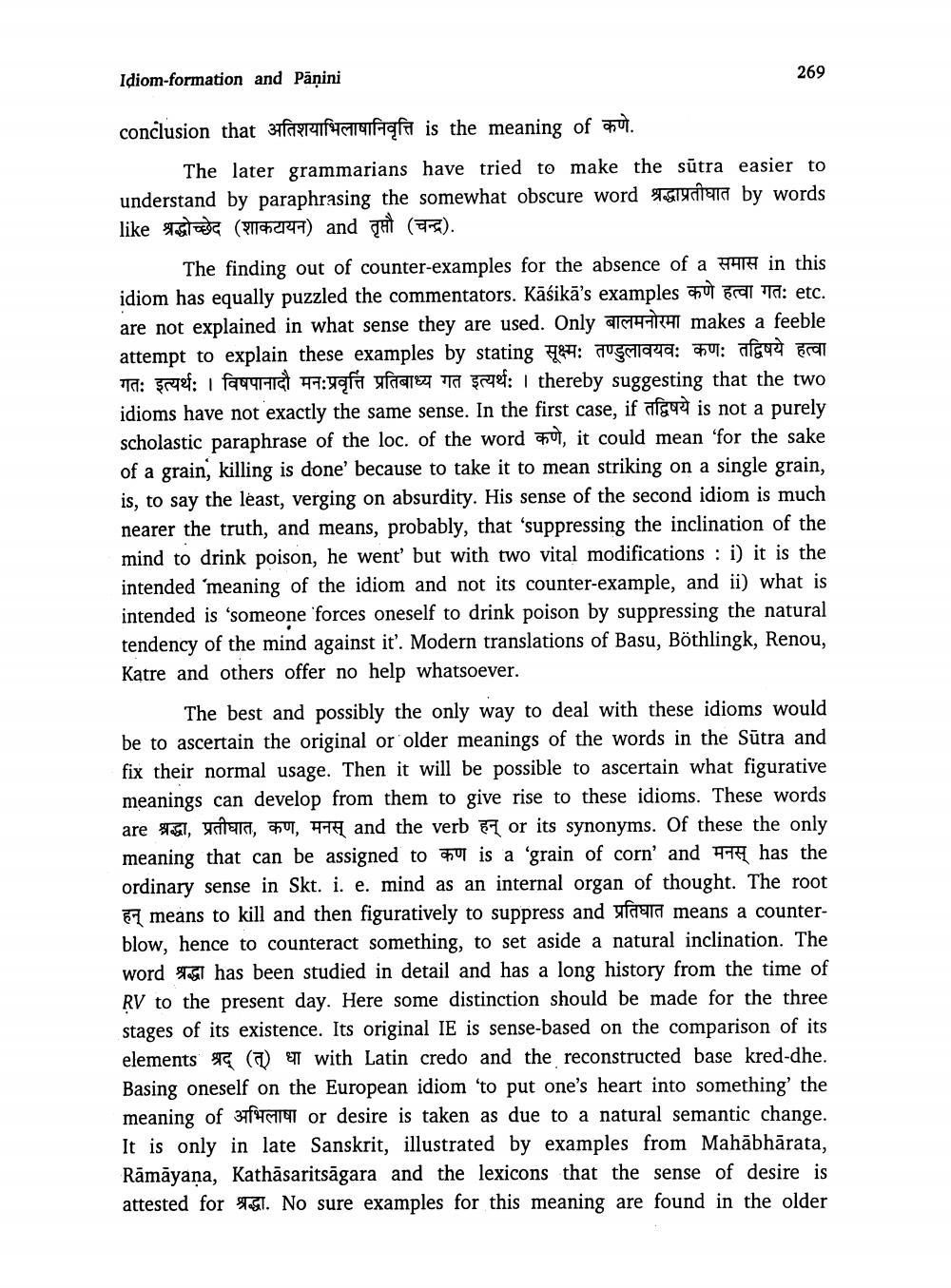________________
Idiom-formation and Pāṇini
269
conclusion that अतिशयाभिलाषानिवृत्ति is the meaning of कणे.
The later grammarians have tried to make the sūtra easier to understand by paraphrasing the somewhat obscure word slecitand by words like to (FCERA) and TH (ES).
The finding out of counter-examples for the absence of a 4414 in this idiom has equally puzzled the commentators. Kāśikā's examples on Brail a: etc. are not explained in what sense they are used. Only alMHI makes a feeble attempt to explain these examples by stating 74: gugalcea: 001: afged Eral TG: grief: H y gfe falez Tarief: thereby suggesting that the two idioms have not exactly the same sense. In the first case, if aface is not a purely scholastic paraphrase of the loc. of the word out, it could mean 'for the sake of a grain, killing is done because to take it to mean striking on a single grain, is, to say the least, verging on absurdity. His sense of the second idiom is much nearer the truth, and means, probably, that 'suppressing the inclination of the mind to drink poison, he went' but with two vital modifications : i) it is the intended meaning of the idiom and not its counter-example, and ii) what is intended is 'someone forces oneself to drink poison by suppressing the natural tendency of the mind against it'. Modern translations of Basu, Böthlingk, Renou, Katre and others offer no help whatsoever.
The best and possibly the only way to deal with these idioms would be to ascertain the original or older meanings of the words in the Sūtra and fix their normal usage. Then it will be possible to ascertain what figurative meanings can develop from them to give rise to these idioms. These words are श्रद्धा, प्रतीघात, कण, मनस् and the verb हन् or its synonyms. Of these the only meaning that can be assigned to put is a 'grain of corn' and 47 has the ordinary sense in Skt. i. e. mind as an internal organ of thought. The root 67 means to kill and then figuratively to suppress and foreld means a counterblow, hence to counteract something, to set aside a natural inclination. The word space has been studied in detail and has a long history from the time of RV to the present day. Here some distinction should be made for the three stages of its existence. Its original IE is sense-based on the comparison of its elements at (a) ET with Latin credo and the reconstructed base kred-dhe. Basing oneself on the European idiom to put one's heart into something the meaning of B MI or desire is taken as due to a natural semantic change. It is only in late Sanskrit, illustrated by examples from Mahābhārata, Rāmāyana, Kathāsaritsāgara and the lexicons that the sense of desire is attested for store. No sure examples for this meaning are found in the older




